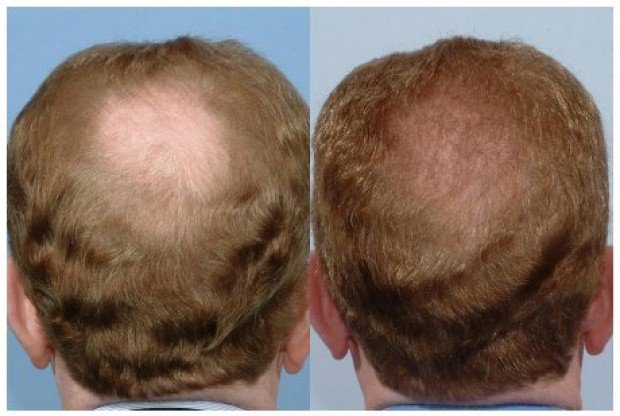What causes hair loss in men
There are a number of myths surrounding what causes hair loss in men..
These myths can often be confusing for those suffering from this problem and it is important that, before any man seeks treatment, he understands what is causing his hair loss.
To help men suffering from hair loss, we’ve explained the main causes below and have also dispelled some rumours about why men lose their hair.
Male pattern hair loss
In the majority of male hair loss cases, the cause is androgenetic alopecia or male pattern hair loss.
Men’s hair begins to naturally thin out soon after puberty. This process progresses the older the man gets with around 20% of men in their twenties showing signs of male pattern hair loss. This number increases to 40% for men in their forties and to 50% for men in their fifties.
There are three main factors that contribute to male pattern hair loss, genes, hormones and time.
Genes:
Male pattern hair loss is inherited genetically from ones parents however; it is not certain how exactly these baldness genes are passed on. For example, one sibling may suffer from baldness while another has a full head of hair.
It is possible for you to be a carrier of baldness genes and not suffer from baldness yourself. It is also accepted that predisposition to baldness inherited on the mother’s side is greater than predisposition inherited from the father’s side.
It is important to note that baldness genes on their own will not make you lose your hair, the presence of hormones and time are what enable the genes to express themselves.
Hormones:
Dihydrotestosterone, or DHT, is a hormone related to testosterone that is responsible for triggering the balding process and is created when testosterone reacts with an enzyme called 5 alpha-reductase.
When hair follicles are exposed to DHT they begin to shrink. This results in the hair from these follicles becoming finer and shorter. Over time, hair from these follicles stops growing all together.
Men usually begin to notice hair loss when more than half of the follicles in a certain part of the head have been exposed to DHT.
Time:
DHT does not just impact hair follicles overnight. It takes time to effect follicles and for the results to show themselves.
The levels of DHT present, a person’s genes and their age all contribute to how quickly hair loss happens. Men with excessive hair loss tend to lose a lot of their hair before they are 30, while others won’t see any issues until they are in their late thirties or forties.
In general, sufferers of male pattern baldness will notice different periods of slow and rapid hair loss as well as periods of no hair loss at all.
Norwood Classification of Male Pattern Hair Loss
This is a system used to help categorise genetic hair loss in men. It shows, very simply, the different stages of male pattern baldness. The system has two basic patterns of hair loss, one that starts in the temple and one that starts in the crown. You can find out more about this system here.
Myths surrounding what causes hair loss in men
Now that we have outlined the reasons for male hair loss, we can debunk any myths or rumours about why men lose their hair.
Poor Circulation:
Poor circulation to the head is not a reason for male hair loss. If it was, then transplanted hair would not grow at all and, as you can see from previous hair transplant results, it most definitely does.
Hats and helmets:
Wearing a hat normally, not in a way that is too tight or causes friction, does not cause hair loss. It may be that, because many men who suffer from hair loss wear hats, people began to think hats were the cause. This is not true.
Poor scalp hygiene:
This theory is not supported by any scientific evidence and if it were true, those living in poorer countries where washing is less frequent would all be bald. It would also mean that anybody with balding on a particular part of their head managed to avoid getting any water or soap on that particular section, which is of course not possible.
Excessive scalp hygiene:
Similar to the poor scalp hygiene theory, this is also not true. Hair loss occurred in men well before frequent washing and shampoo became the norm and there is no evidence to suggest that, since men began washing more frequently, the numbers suffering from baldness have increased.
Frequent blow-drying:
Using a hair-dryer incorrectly can burn hair and cause it to fall out, however, except in extreme cases, new hair would grow from the follicle to replace the burned hair.
Stress:
Stress can lead to hair loss but it is believed that somebody cannot lose their hair through stress unless they already have the genetics for male pattern baldness. Stress can result in a type of hair loss called telogen effluvium but this is not the same as irreversible male pattern hair loss.
We hope this has helped to clarify why you are suffering from hair loss. If you would like to discuss possible treatment options please contact us to request a consultation.
To read more about hair loss in men visit the ISHRS website.











